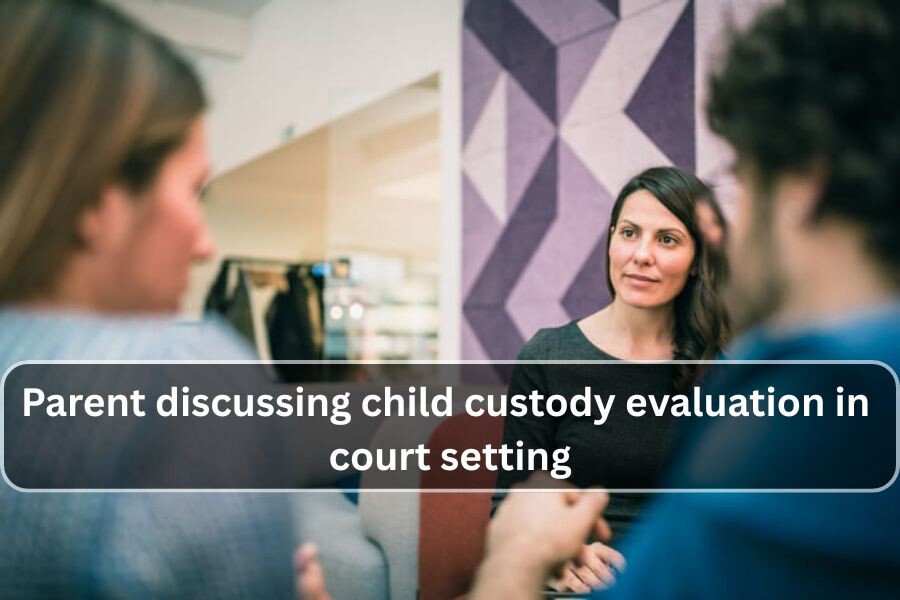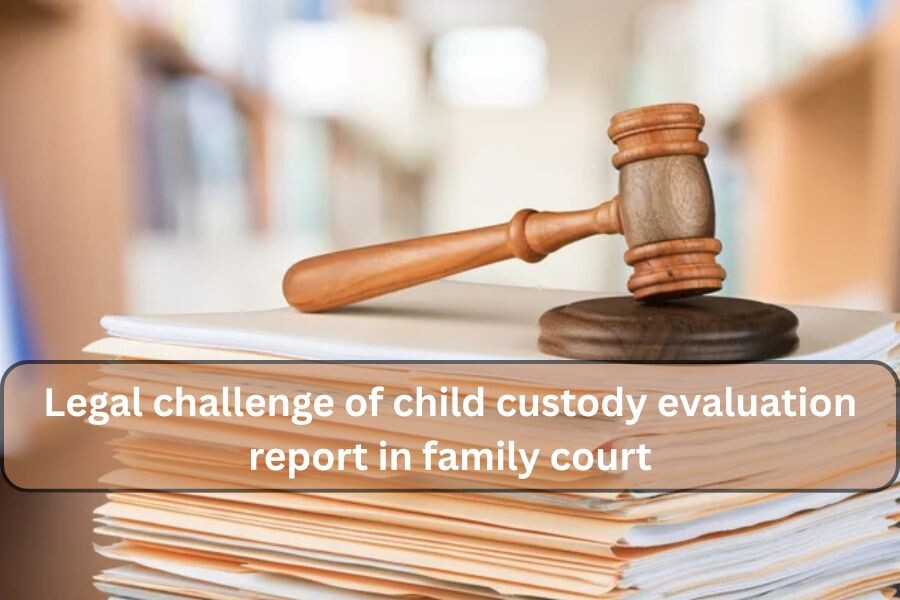A poor child custody evaluation can feel like the end of the road — but it doesn’t have to be. Many parents wonder: Can you challenge a negative child custody evaluation in court? The answer is yes, but the process requires careful planning, legal support, and understanding your rights.
In this guide, you’ll learn how to challenge a negative child custody evaluation, what mistakes to watch for, and how to build a stronger case for your child’s best interests.
What is a Child Custody Evaluation?
A child custody evaluation is an assessment conducted by a licensed mental health professional to provide the court with recommendations about child custody and visitation. These evaluations consider:
The child’s mental and emotional needs
Each parent’s ability to meet those needs
Any history of abuse, neglect, or substance misuse
If you received a negative child custody evaluation, it may severely impact the court’s decision — unless you challenge its findings properly.

You should consider challenging the evaluation if:
Factual Errors Exist: Misreported events, dates, or information
Evaluator Bias: Conflicts of interest or personal bias from the evaluator
Improper Methods: Non-standard tests or unsupported conclusions
Lack of Evidence: Recommendations not backed by adequate documentation
✔ For accurate court-ordered evaluations, visit our Child Custody Assessment Services page.
Steps to Challenge a Negative Child Custody Evaluation
1. Review the Evaluation Report Thoroughly
Obtain a copy and read every page to identify:
Inaccuracies
Misrepresentations
Unsupported conclusions
2. Consult with Your Attorney
Discuss findings and possible grounds to contest the evaluation legally.
3. Hire an Independent Expert Witness
A second qualified evaluator can review the report for errors or procedural flaws.
✔ Learn about the importance of Expert Witnesses in Child Custody Cases.
4. File a Formal Objection
Your attorney can file a motion to challenge the evaluation or request the court to exclude it.
5. Prepare for Cross-Examination
In court, your legal team can question the evaluator on:
Their methods
Their conclusions
Any potential bias or errors
What Are the Legal Grounds to Challenge an Evaluation?
| Ground | Explanation |
|---|---|
| Procedural Errors | Evaluator did not follow court guidelines. |
| Evaluator Bias | Demonstrated favoritism or conflict of interest. |
| Factual Mistakes | Incorrect personal, medical, or historical data. |
| Unsupported Conclusions | No evidence to justify the recommendations. |
FAQs: Challenging Negative Child Custody Evaluations
Q1: Can a judge ignore the evaluator’s recommendation?
Yes, judges are not bound by the evaluator’s opinion but often give it significant weight.
Q2: How much does hiring an independent custody evaluator cost?
Costs vary, but having a second opinion can make a major difference in custody disputes.
Q3: Can the same evaluator reassess their own report?
Usually not. A new evaluator is required for an independent reassessment.
Conclusion
If you receive a negative evaluation, knowing how to challenge a negative child custody evaluation in court could protect your parental rights and your child’s future. Work with an experienced attorney, gather evidence, and consider a second professional opinion to present a strong case.
Need a reliable, court-approved custody assessment? Explore our Child Custody Assessment Services today.
